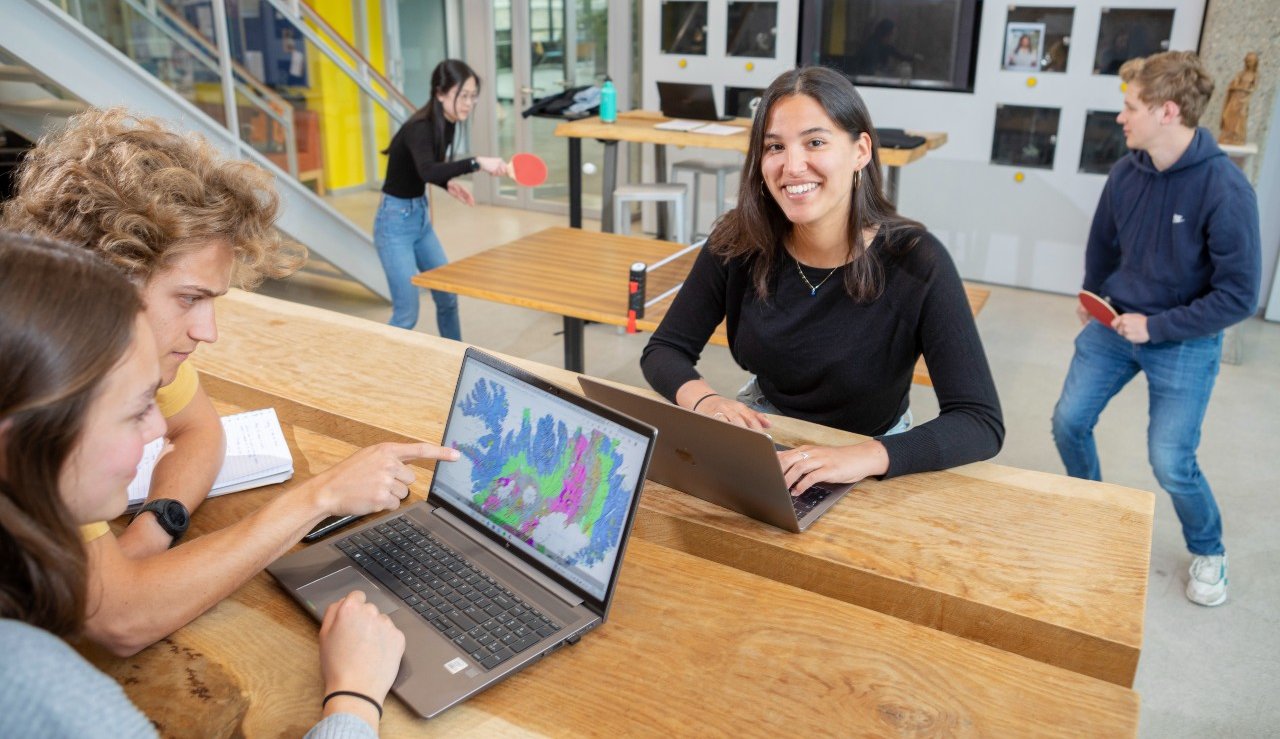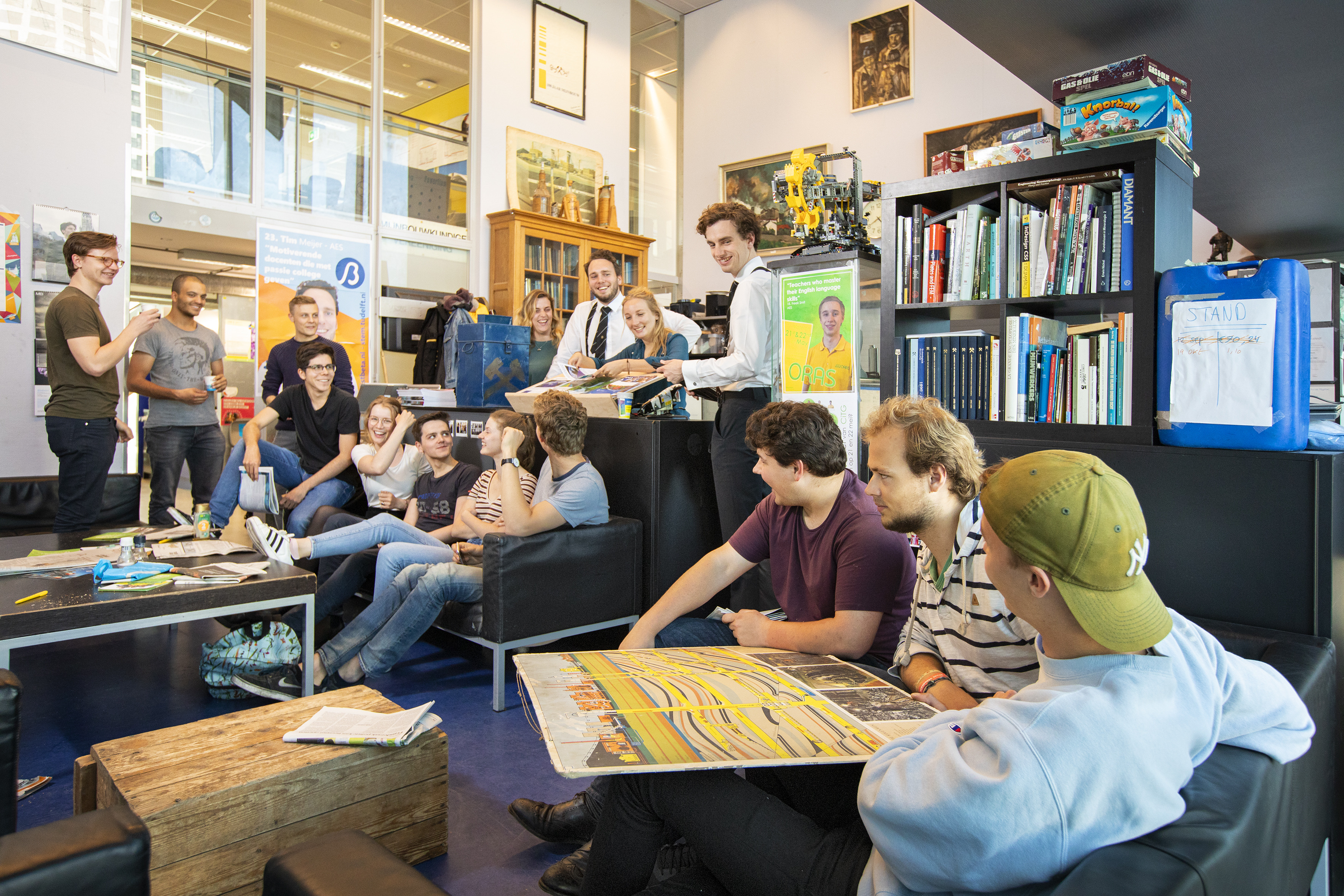About the programme
Climate extremes and natural hazards such as heavy rainfall, heatwaves, floods, and landslides are becoming increasingly common. To ensure a safe and healthy living environment, it is crucial to monitor and predict how the Earth is changing, from the atmosphere to the surface and the subsurface. Moreover, there are significant technological challenges in securing our sustainable energy supply. The English-taught bachelor programme Earth, Climate and Technology combines knowledge from Earth sciences, mathematics, physics, and chemistry to better understand how the Earth functions and to develop technical solutions for climate challenges and the energy transition.
Earth, Climate and Technology is a broad and versatile programme. You will have a varied curriculum and be actively engaged in the 'real world' from the very beginning. In the lab, as well as during fieldwork assignments and excursions, you will apply your theoretical knowledge both in the Netherlands and abroad! A distinctive feature of this programme is its small-scale character. Students from different year groups know each other, and you will be in close contact with lecturers and researchers who are conducting internationally leading research throughout your studies.
Field of study
In the Earth, Climate and Technology programme, you will explore a fascinating and versatile field that encompasses the Earth in the broadest sense - from the atmosphere to several kilometres deep into the subsurface. You will use the latest technology to study and monitor changes in the atmosphere, Earth's surface, and the subsurface. We can essentially divide the area of study into:
- The atmosphere
- The earth's surface
- The subsurface
In this programme, you will tackle urgent global issues, such as climate change and its resulting natural phenomena. For example, you might work on predicting earthquakes and understanding how they impact a region, or on monitoring melting ice caps and assessing their effect on sea level rise. The energy transition is another major challenge you will address within Earth, Climate and Technology. You will learn how to contribute to better stewardship of the planet through technical innovations. Understanding the so-called 'Earth system' is crucial for this work.
interesting videos
Binding recommendation
TU Delft employs the BSA system: the binding recommendation on the continuation of studies. This means that you must obtain at least 75 per cent of your credits (i.e. 45 of the 60 ECTS) in your first year in order to continue your programme. If you receive a negative binding recommendation on the continuation of studies, you will not be permitted to enroll in this programme again in the next 4 years.
The study association, the MV, is for all students, PhD’s, alumni and employees involved in the programme. Besides the activities that support the study, the MV is also involved in fun supplementary activities for each of these target groups. The association also supports students in educational committees and in case of complaints.The MV also has its own pub in the city centre of Delft and is very active!


